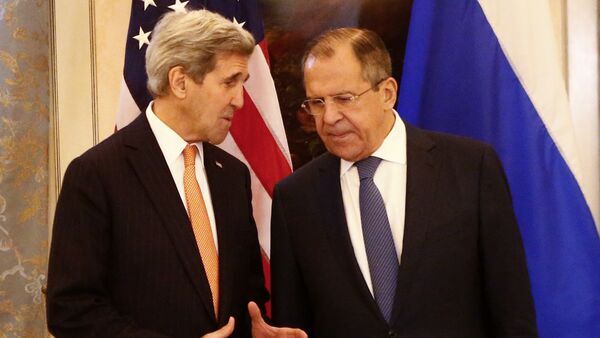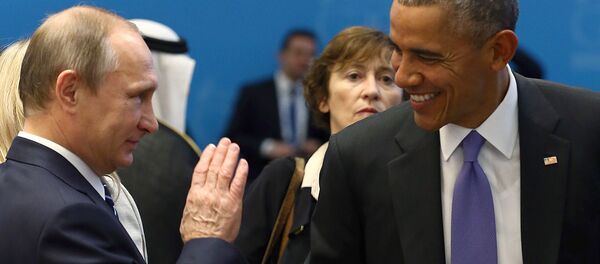WASHINGTON (Sputnik) — The agreement between the United States and Russia to effect cessation of hostilities in Syria confirms that Moscow has emerged as the real power there, former European Union and US Agency for International Development (USAID) advisor Paolo von Schirach told Sputnik.
"Finally Washington recognizes that Moscow is the real power broker in Syria," Schirach stated on Monday. "America, while enjoying the status of co-chair with Russia, has almost no influence on the ground."
The US-Russian joint statement, whose details were revealed by the Kremlin on Monday, confirms that Syrian President Bashar Assad will stay on indefinitely as the leader of the country, Schirach predicted.
"This statement hides a simple fact. The ceasefire, assuming it will hold, will implicitly affirm that Washington has given up on its old political objective of removing Assad from power," he said. "With strong Russian military protection, Assad is likely to survive the immense Syrian tragedy."
This underlying reality was evidently clear to Russian Foreign Minister Sergei Lavrov and US Secretary of State John Kerry, the two key figures in negotiating the Joint Statement, Schirach pointed out.
However, the United States, like Russia, would benefit in the long term from the agreement, Schirach continued.
"This is not such a horrible outcome. Unlike the jihadists, Assad never represented an existential threat to the US homeland. He may be an unpalatable autocrat, but he is not a global menace," he suggested.
Schirach noted that in agreeing to the deal, Kerry was also acknowledging the real military weakness of the groups it had supported for nearly five years in the Syrian conflict.
"Simply stated, the Obama administration has no bargaining power on the ground. The pro-Western anti-Assad rebels Washington supposedly supports are weak to begin with; and they have been mercilessly bombed by the Russians," he recalled.
Schirach observed that the only US reaction to these developments had been to complain that the Russians were not solely attacking the Islamic State (ISIL, or Daesh), which is outlawed in Russia, the United States and many other countries.
"All in all, as Washington negotiated from a weak position, a ceasefire that may allow a real refocus on Daesh may be a good thing. Looking ahead, it may be possible that, with a Syrian cease fire, the US and others may finally coalesce against Daesh in Syria and Iraq," he argued.
Defeating Daesh in the region would not signal the end of the global jihad, but it would represent a major symbolic defeat for this millenarian movement, Schirach concluded.
Paolo von Schirach is also a Professor of International Relations at BAU International University in Washington, DC, and publisher and editor of the Schirach Report.


